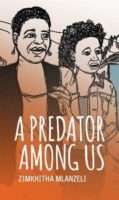Did you know that schooling, education, is a basic human right? In South Africa it is considered so important that it is compulsory for young people to attend school.
So when parents send their children to school every day, they expect that the Education Department and school staff will do all they can to keep their precious children safe.
And mostly they are safe. There are written safety rules and procedures every school must follow. The Department orders that every staff member must know them, and all learners must know them. Parents should know them. These documents telling us about safety in schools are available for anyone to read online. You can read them here.
In this story, we see a teacher who is a sexual predator and a rapist. The person meant to protect and care for his learners is in fact an abuser. And he’s not alone – there are too many cases of teachers being abusers out there.
The Department has published a booklet about this form of abuse. In it they assure us: “As the Department of Basic Education (DBE), we promise each one of you to honour our duty to protect and respect you while you are at school. Likewise, we promise you our full support in seeking justice if you have been the victim of sexual abuse.” You can read the booklet here.
So with all this support from the law and the Education Department, why do we still have so many problems?
One reason is that it’s hard to report a teacher, and be believed. Look at what happened in the story. The crime is committed in secret. So it will be Mr Ngwenya’s word against Ayanda’s.
He is the one with power, status and authority, and so it is most likely that he will be believed. Any relationship between a teacher and a learner is unequal – teachers hold the power. That is why it is illegal for teachers and learners to have a relationship, even if the learner wants it too.
Secondly, child-abusing rapists in a setting like this are careful and clever. They groom their victims into accepting what happens, and they take advantage of several things. Mr Ngwenya offered extra lessons, something Ayanda wanted and needed. In other situations teachers might offer things like phones or airtime to young girls who cannot afford these things.
Then, there is the problem that teachers are respected and have status in communities. They are automatically believed to be caring, giving people. Look how Lerato’s mother thinks that the teacher is, “… a good man; he would never do such a thing.” Abusive teachers count on hiding behind opinions like this.
Mma Radebe even dismisses a serious allegation of him having fathered a baby with a schoolgirl as malicious, like this: “Gossip. That girl was angry that Mr Ngwenya wouldn’t give her a pass. I was there when the church investigated those rumours. And her family didn’t even believe her.” It’s clear that the girl was the victim here – and how unfair and cruel it is that she got blamed by everyone. This can happen in other situations as well, especially when it is powerful men (sometimes even religious leaders) who abuse young girls with little status in society.
Reporting what happened is traumatising in itself. It can feel shaming, even though it’s not the victim’s fault. You have to tell people about the terrible event, many times. So some abusers count on victims not wanting to do this, or go through a court case.
And victims of sexual abuse and rape commonly blame themselves for somehow ‘allowing’ the crime to happen to them. It is important to note that sexual assault and rape is never the victim’s fault. Rape happens because of rapists.
In the story, fortunately, Mr Ngwenya is caught red-handed, in the act, with three other people as witnesses: Lerato, her mother, and the school’s caretaker who came running when he heard Lerato screaming.
The principal at Phendula Park school does the right thing. He immediately suspends Mr Ngwenya, and encourages students to speak up.
The same thing is supposed to happen even if there are no eye witnesses and the victim is brave enough to tell a parent or teacher or the principal.
The Department booklet says assault like this is such a serious offence that: “The law says: the teacher MUST be fired and should NEVER EVER teach again.”
Please take note of this though: anyone (including anyone reading this) who is a victim of sexual assault and chooses not to reveal it, should not be blamed. As we have seen, charging someone with this crime is an incredibly difficult thing to do.
To report and get justice for gender-based violence (GBV), a person has to be brave and strong, and patient. They have to keep believing that they deserve justice, and will be a survivor. To get through this difficult, stressful, legal process, it is essential they get a trusted friend or teacher or parent to accompany and support them.
In our story we know that Ayanda will have loyal support from her family, friends, Mrs Radebe, and her school principal. She will get justice.
Tell us: Did you find these Talking Points useful?
To find out more about more Gender-Based Violence and how to report it read the Sexual Abuse Handbook



